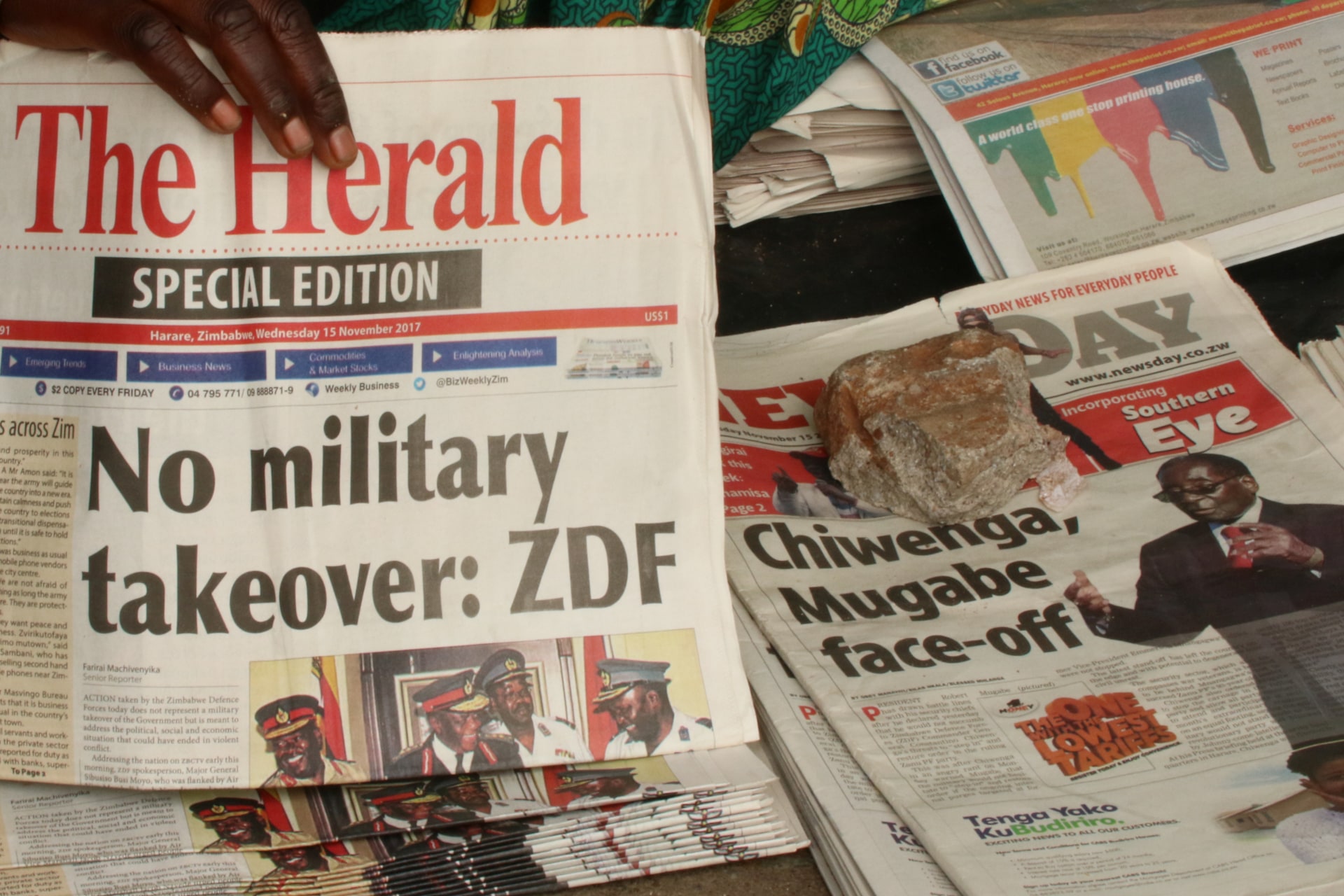Responding to Coups That Aren’t Coups

By experts and staff
- Published
By
- John CampbellRalph Bunche Senior Fellow for Africa Policy Studies
Spokesmen are insisting that the military’s intervention earlier this week in which it placed President Robert Mugabe and his wife Grace under house arrest and took over the state television station is not a coup. Instead, the military maintains that its intervention targeted “criminals,” and it has good reason to say so. The African Union (AU) and the Southern African Development Community (SADC) are strongly and explicitly against coups. In some developed countries, such as the United States, a coup can automatically trigger sanctions. Hence, most American administrations are often reluctant to identify military intervention as a coup in a country of strategic importance to the United States. For example, General el-Sisi led a coup in 2013 that toppled the recently democratically elected government of Mohamed Morsi in Egypt, and the U.S. declined to acknowledge that the intervention was, in fact, a coup. Egypt is a key U.S. partner in a volatile region, and sanctions would have undermined its relationship, rightly or wrongly.
Whether or not we decide to call it a coup, when soldiers in fatigues takes over the state owned television station at 4:00 a.m. and announce that the president and his wife are under house arrest, and armored vehicles block roads to government offices, parliament, and the courts, it probably is a coup: ‘if it looks like a duck, swims like a duck, and quacks like a duck, then it probably is a duck.’ Furthermore, the current head of the African Union, Alpha Conde, who is also president of Guinea, has commented that what happened in Zimbabwe is “soldiers trying to take power by force.” By any reasonable, objective standard, a military coup took place in Zimbabwe.
The U.S. lawmakers who have commented publicly have taken the general line that the ouster of Mugabe is welcome, but the methods are not. Senator Ben Cardin (D-MD) the senior Democrat on the Senate Foreign Relations Committee, commented, “We obviously don’t like coups, but it’s time for the country of Zimbabwe to move on. I hope that they will find a democratic process.” Senator Jeff Flake (R-AZ), who has lived in Zimbabwe, commented that Mugabe would be remembered “as a long-serving thug.” Senator Lindsey Graham (R-SC) said, “[Mugabe] got more attached to power, more repressive in how he treated his people,” and was party to “rampant corruption.”
The U.S. State Department’s November 16 comment reflects the difficulty of dealing with a coup, even when the outcome is desirable: “The U.S. government is concerned by recent actions undertaken by Zimbabwe’s military forces. We call on all Zimbabwean leaders to exercise restraint, respect he rule of law, uphold the constitutionally protected rights of all citizens and to quickly resolve differences to allow for a rapid return to normalcy.” It assiduously avoided any characterization of the military intervention.
For now, it is likely that the international community, like Zimbabweans, will accept the November 16 coup, especially if violence by the army and the police is avoided and steps are taken toward future restoration of civilian, democratic rule.